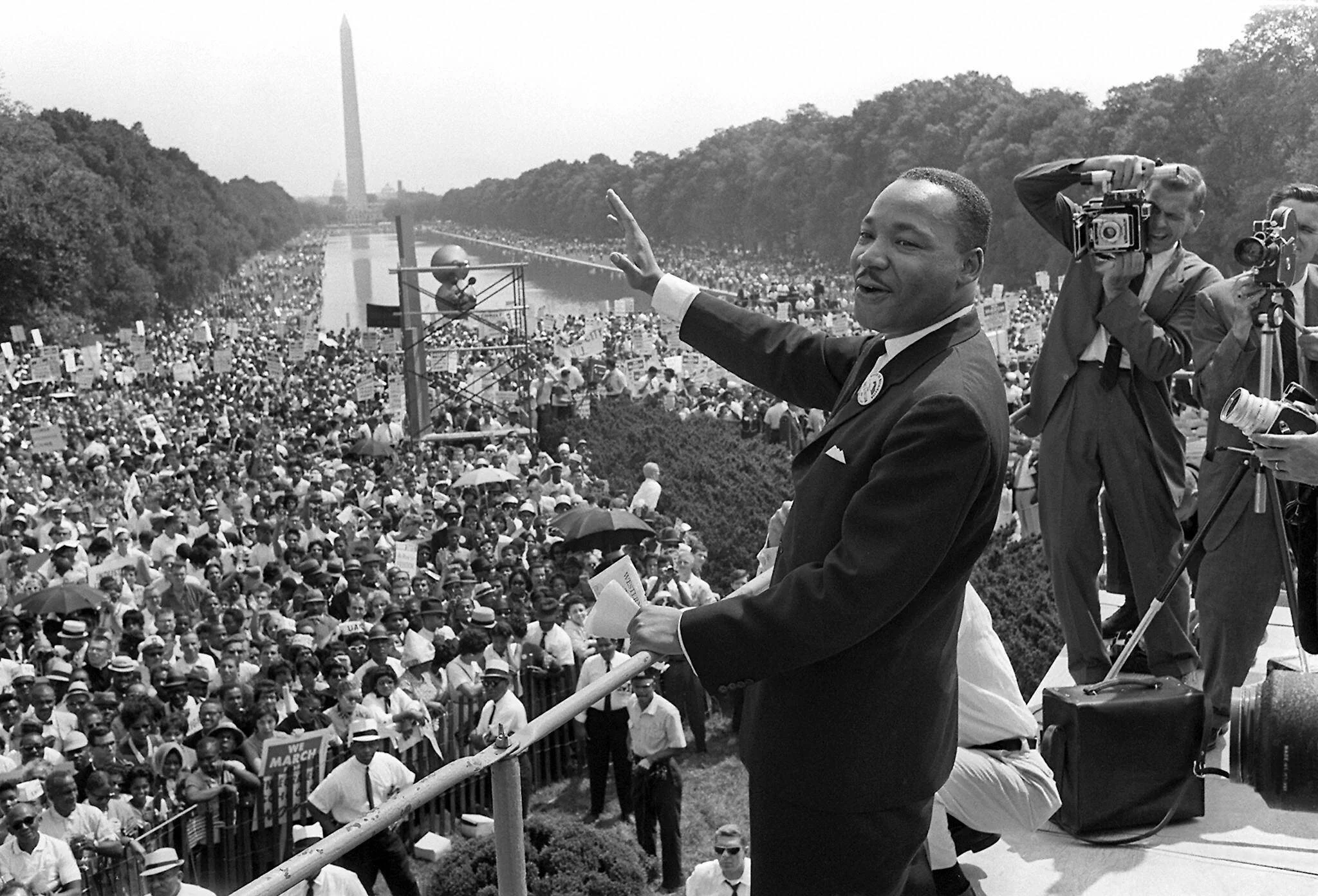Martin Luther King Jr. Day
Today is Martin Luther King Jr. Day—a day to celebrate the life and legacy of Dr. King and the Civil Rights Movement. He is probably best known around the world for his non-violent activism against voter disenfranchisement, segregation, and racial injustice in the American South. No list of “Greatest Speeches in History” is complete without King’s “I Have a Dream” speech, and no MLK Day can pass without hearing these words—
“I have a dream that my four little children will one day live in a nation where they will not be judged by the color of their skin but by the content of their character.”
After a decade of activists’ non-violent protest and the state’s violent retaliation, Congress passed the landmark Civil Rights Act in 1964 and the Voting Rights Act in 1965. While we know the fight for equal treatment under the law continues (see the fallout from Shelby v. Holder (2013)), these laws introduced a federal policy against segregation and racial discrimination in the United States.
His legacy is far broader. While King is most famous for his fight against racial injustice, he had a holistic understanding of racism as inextricably linked to poverty, militarism, and violence.
As such, Dr. King understood well that the original sin of this country was not slavery but the policy of genocide against Native Americans. In his 1964 book Why We Can’t Wait, he wrote—
“Our nation was born in genocide when it embraced the doctrine that the original American, the Indian, was an inferior race. Even before there were large numbers of Negroes on our shores, the scar of racial hatred had already disfigured colonial society. From the sixteenth century forward, blood flowed in battles of racial supremacy. We are perhaps the only nation which tried as a matter of national policy to wipe out its Indigenous population. Moreover, we elevated that tragic experience into a noble crusade. Indeed, even today we have not permitted ourselves to reject or feel remorse for this shameful episode. Our literature, our films, our drama, our folklore all exalt it.”
Marchers in Poor People's Campaign May 10, 1968, in Atlanta. (Photo credit: AP file photo). Source.
In the latter half of the 1960s, King declared, “We have moved from an era of civil rights to an era of human rights;” that is, economic and social rights. His activism focused on the plight of the poor people in America and against the escalating war in Vietnam. King said, “We believe the highest patriotism demands the ending of the war and the opening of a bloodless war to the final victory over both racism and poverty.”
The 1968 Poor People’s Campaign was a multiracial movement of African Americans, Native Americans, Asian Americans, Hispanic Americans, and white Americans to alleviate poverty regardless of race. Demonstrators from across the country created Resurrection City in Washington in May 1968.
But while in Memphis to support striking Black sanitation workers, King was assassinated on April 4, 1968.
A week after King’s assassination, Coretta Scott King said—
“Our concern now is that his work does not die. He gave his life for the poor of the world — the garbage workers of Memphis and the peasants of Vietnam.
The day that Negro people and others in bondage are truly free, on the day want is abolished, on the day wars are no more, on that day I know my husband well rest in a long-deserved peace.”
There is a plaque on the steps of the Lincoln Memorial commemorating the “I Have a Dream” speech. TCH founder Emma spoke at the Indigenous Peoples’ March in 2019, steps from where Dr. King gave this address. Today, she recalls—
January 18, 2019, the day of the inaugural Indigenous Peoples March, was a very memorable one for me. Thousands of Indigenous relatives and our allies came together from across the world to march and gather on a cold, icy day in DC. There I gave a speech at the Lincoln Memorial, talking about the urgency of clean water on Native Nations and honoring our basic treaty and human rights, on the same steps where Dr. Martin Luther King Jr. delivered his famous 1963 speech. It was a surreal experience to stand in his footprints, and one I will never forget.
Like many, I grew up learning about Dr. King and the Civil Rights Movement. His powerful ideas and peaceful actions, the movement he sparked and the people he worked with impacted me deeply as a mixed Navajo Jew. Although things were not the same as they were when Dr. King was alive, growing up with a white mom and a Brown dad was not easy on the reservation within conservative, racist states in the 90s. He and his dream meant a lot to me.
As I got older, I gained a deeper understanding of what Dr. King’s dream was. It wasn’t about this rainbow of people tolerating one another—it was about redistribution of political and economic power, the fight to end poverty and warmaking. All of this is especially true today. I know now more than ever we all must fight for this dream to make it our reality.




